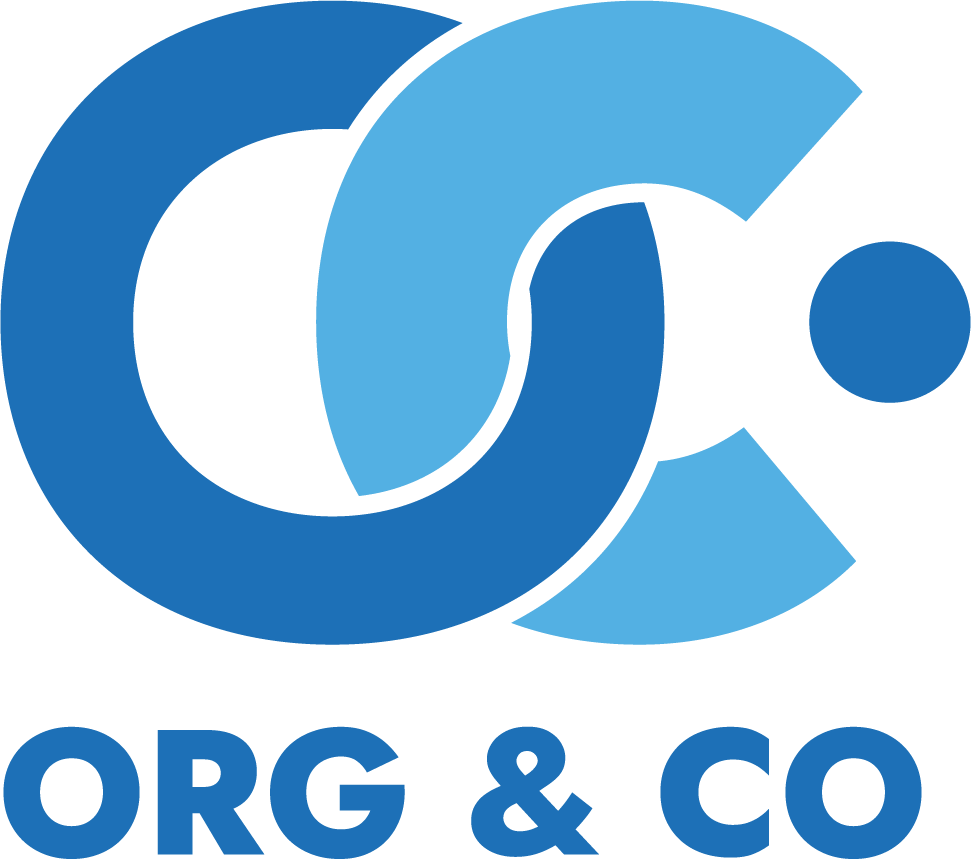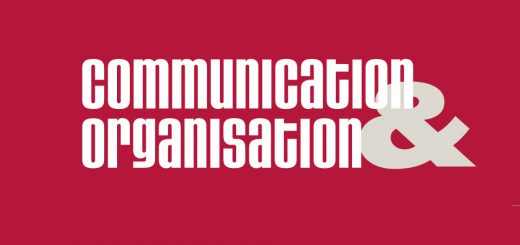[AAC] 6th RGCS Symposium
Space of play – Dividing, intertwining or flowing the spaces?
It is with great honor and pleasure that the city of Montpellier, the Montpellier Research in Management laboratory (MRM) and the University Institute of Technology (IUT Montpellier-Sète) will host the sixth RGCS (Research Group on Collaborative Spaces) symposium on January 20 and 21, 2022. Researchers, practitioners, activists and students who are members and supporters of the collective are invited to ex- change about the politics and managerialisation of space(s). This call for proposals do not exhaust the richness of the theme and we invite all future participants (researchers, students, practitioners, activists…) to broaden the circle of knowledge through theoretical, empirical and creative studies in organizational and work sciences, but also on all forms of art.
1. Main topics
[1.1. #Separating the spaces] The first section of this symposium questions the compartmentalization of spaces and their functions within society; whether it is the distinction between work and leisure, public and privatized, political and apolitical, reflection and action, activity and contemplation (Arendt, 1958). If spaces are separated, sectioned and fed by diverse functionalities, the research here will question the im- mutability of these spheres, making organizations increasingly hybrid and liquid, and the gaps increasingly thin (Grandazzi, 2018). This section will also contribute to the qualification of spaces, questioning ha- ckerspaces, makerspaces, fablab, techlab, techshop, garage, repair café, sharing platform, garage, third places on what they mean (Berrebi-Hoffmann et al., 2018).
-
– Howdonewtechnologiesmaketheboundariesbetweenprofessionalandpersonalspheresincreasingly abstract?
-
– How to theorize and analyze the in-between spaces and the role of boundary-spanners in new organi- zational forms?
-
– What issues for the identification and qualification of collaborative spaces? -…
[1.2. #Flowing the spaces] The second section of this symposium uses the spatial and temporal lens to analyze organized social relations. Martin Parker (2002) defines organization as ‘’the attempt to collect and divide people and things according to some kind of pattern. The process that constitutes the social, that constructs differences and similarities across space and time‘’. The proposals of other spaces (Lefebvre, 1991; Foucault, 1984), forged in the utopian and dystopian imaginaries, represent counter-spaces and question their interactions, their crossings and frictions with their past, present and future environments. By designating these possible and realized spaces initially by the contestation of a dominant reality (Bazin and Naccache, 2016), thinkers such as Michel Foucault, Henry Lefebvre, or Michel de Certeau, rehabili- tate the capacity of each one to embody an alternative to the established order and thus to propose other ways of organizing (Picard, 2016; Hjorth, 2005).
-
– How important is the notion of space and politics in the study of organizations?
-
– What is the relationship between spaces of reproduction and spaces of deviance?
-
– Do the new work practices drive out the old ones, or do they merge and pile up? -…
[1.3. #Working the spaces] As for the other symposiums, all discussion about news ways of working (Aroles et al., 2021) are welcome. Certainly, the Covid19 crisis and the information technology have chan- ged our relationship to workspaces as well as to the organization of work. In this third section, we want to explore the different aspects of work (hackers, makers, communities, digital nomads, remote-workers, activists, artists) and their impact on the organizational transformation and social relations articulation. Finally, the debates and conversation around a universal basic income, the regular controversies on the management of work, raise questions about a post-work society, even the end of work (Granter, 2019).
– Is there/what are the, differences between new and old work practices?
– How do new work practices influence (political) spaces?
– how workers, activists, and researchers today imagine post-work societies ? -…[1.4. #Imaging the spaces] The final section looks at the place of art, poetry and dreams in the study of organizations (Biehl-Missal and Saner, 2014; Darmer and Grisoni, 2011). Imaginative thinking propel- led into the field of organizations is an inherently unreal notion, sometimes derided for its non-applicabi- lity. The boundary between the real and the unreal being here envisaged as something discontinuous and experiential (Alvarez and Merchán, 1992). Thus, utopian/dystopian proposals, by denouncing or valuing our modes of society, come to reduce the gap between the possible and the impossible, ‘!the real that exists and the real that does not exist’’ (Pessoa, 2011: 392). Thinking about organizations and their imagi- naries (science-fiction, poetry, metaphors, etc.) could then represent particularly interesting theoretical and managerial contributions for organizational studies (Parker, 2006; Rhodes and Brown, 2005).
– What place should be given to utopias, dystopias and imaginary thoughts in the study of organizations? – How do art and poetry feed management practices or are they fed by management practices?
– How do discursive issues perform organizations? What is the place of discourse, myths, narratives and metaphors in organizations?
-…
2. Proposal format
All submissions, related to RGCS or not, are welcome. The contributions expected for the October 31rd
2021, will take two main forms:
-
– Proposals for communications that aim to contribute to the conversation on the central theme of the Symposium. Papers should be approximately 500 words in length, outlining the objectives of the paper and the contributions to organizational science. Authors will then be invited to present their pa- pers in parallel sessions.
-
– Free radios with the objective of cultivating debate and conversation on topics related to the central theme. Contributions should include one or two pages presenting the moderators (practitioners, re- searchers, activists, students…) and the issues at stake. Material needs will be taken care of by the Fa- blabs of the IUT of Montpellier (radios, microphones, sound system, etc.).
In order to welcome as many presentations as possible, participants will be able to present their re- search remotely, even if we hope to meet you all in Montpellier. We thus invite people interested in submitting a proposal to get in touch with us at: collaborativespaces@gmail.com. Finally, registration will be free of charge, but the number of seats at the symposium will be limited and registration will be accep- ted on a first-come first-served basis
3. What is RGCS?
RGCS is both an alternative learned society, a think tank and an immaterial maker space about and for new work practices. Collaborative communities and collaborative movements (coworkers, makers, hackers, DIY) are both a research object and a lever to transform work practices. Since late 2016, the network co- produces a new research method OWEE (Open Walked Event- Based Experimentations) aiming at trans- forming jointly academic and entrepreneurial work practices. This method aims at becoming a commons for academics and entrepreneurs involved in it (e.g. with a sharing of the symbolic capital of impact and citations). For more details about the Research Group on Collaborative Spaces (RGCS): @collspaces or http://rgcs-owee.org.
4. Scientific board
Héloïse Berkowitz (CNRS, TSM Research), Amélie Bohas (IAE Lyon), Claudine Bonneau (ESG UQAM), Sabine Carton (Univ. Grenoble Alpes), François-Xavier de Vaujany (Paris- Dauphine University, PSL), Julie Fabbri (emlyon business school), Anne-Laure Fayard (New York University), Anna Glaser (ESCP Europe), Andreea Gorbatai (Berkeley University), Stefan Haefliger (Cass Business School), Benjamin Huybrechts (emlyon business school), Martine Huyon (Sciences Po Lyon), Pierre Laniray (Paris-Dauphine University, PSL), Nicolas Lesca (Univ. Grenoble Alpes), Benoît Loeillet (emlyon business school), Janet Merkel (TUB), Montserrat Pareja-Eastaway (University of Barcelona), Guy Parmentier (Univ. Grenoble Alpes), Cristina Rossi (Polytechnic University of Milan), Viviane Sergi (ESG UQAM), Matt Statler (New York University), Tadashi Uda (Hokkaido University), Paula Ungureanu (University of Modena and Reg- gio Emilia), David Vallat (Sciences Po Lyon).
5. Local organizing committee
Paul Chiambaretto (Montpellier Research in Management), Charlotte Chappert (Montpellier Research in Management), Anne-Sophie Fernandez (Montpellier Research in Management), Pierre Loup (Montpellier Research in Management), Mickael Peiro (LGCO laboratory), Angélique Rodhain (Montpellier Research in Management), Marie-Laure Weber (Montpellier Research in Management), Stéphanie Bouchet (Mont- pellier Research in Management), Florence Nande (Montpellier Research in Management), Audrey Rouyre (Montpellier Research in Management).
6. Bibliography
Albane Grandazzi. (2018). Espaces, pratiques et transition dans l »organisation : une ethnographie en • Alvarez, J. L., & Merchán, C. (1992). The role of narrative fiction in the development of imagination gares. Gestion et management. Université Paris sciences et lettres, 2018. Français. for action. International Studies of Management & Organization, 22(3), 27-45.
-
Arendt, H. (1958). « The human condition ». University of Chicago Press. 369p.
-
Aroles,J.,Vaujany,F.,&Dale,K.(Eds.).(2021).ExperiencingtheNewWorldofWork.Cambridge:Cam- bridge University Press. doi:10.1017/9781108865814
-
Bazin, Y., & Naccache, P. (2016). The emergence of heterotopia as a heuristic concept to study orga- nization. European Management Review, 13(3), 225-233.
-
Berrebi-Hoffmann, I., Bureau, M. C., & Lallement, M. (2018). Makers-Enquête sur les laboratoires du chan- gement social. Média Diffusion.
-
Biehl-Missal, B., & Saner, R. (2014). ‘I’m as much an anarchist in theory as I am in practice’: Fernando Pessoa’s’ Anarchist banker’in a management education context. ephemera theory & politics in organization, 14(4), 985-1007.
-
Darmer, P., & Grisoni, L. (2011). The opportunity of poetry: Report about poetry in organizing and managing. Tamara: Journal for Critical Organization Inquiry, 9(1-2).
Foucault, M. (1984). Des espaces autres (1967), Hétérotopies. Empan, 54(2), 12#19.
-
Granter, E. (2019). Critical Social Theory and the End of Work. London New York: Routledge, 2019.
-
Hjorth, D. (2005). Organizational entrepreneurship: With de Certeau on creating heterotopias (or spaces for play). Journal of management inquiry, 14(4), 386-398.
-
Lefebvre,H.(1991).TheProductionofSpace.Malden,Mass.NewJersey,Wiley-Blackwell.
-
Parker, M. (2006). « The Counter Culture of Organisation: Towards a Cultural Studies of Representations of Work ». Consumption Markets & Culture 9, no 1 (mars 2006): 1#15.
Pessoa, F. (2011). Le livre de l’intranquilité. Paris. Bourgois. 624p.
Parker, M. (2002). Utopia and the Organizational Imagination : Outopia. The Sociological Review, 50, 1-8. Picard, H., & Lanuza, I. M. (2016). D »utopismes en organisations-L »inhabituel comme ressource pour réviser les orthodoxies managériales. Revue française de gestion, 42(260), 71-90.
• Rhodes, C., et Brown, D. (2005). « Writing Responsibly: Narrative Fiction and Organization Studies ». Organization 12, no 4 (juillet 2005): 467#91.



